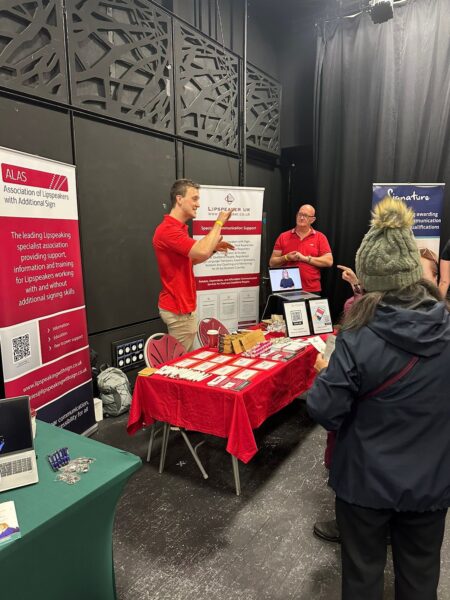6 Questions to Ask When Buying Hearing Aids
Buying a hearing aid can be an overwhelming experience, especially if it is for the first time. With so many companies and products available it can be difficult to decide where to go and what to buy. How do you know that you are getting the best service and product available for your money?
To help you make this important decision, we have put together a list of 6 questions you should always ask when buying hearing aids.
1. Do I really need to buy a hearing aid?
Hearing aids are available free on the NHS in the UK. Many people use these and are completely satisfied with the results. The main drawbacks with NHS hearing aids are that the style and technology is quite limited. NHS aids are generally only offered as Behind the Ear models which some people find either uncomfortable or unsightly. The technology inside is also quite often much lower than some private models which some people find is simply not powerful enough. It is still worth checking if these free hearing aids are suitable for you before you spend money unnecessarily.
2. Who are you?
So you have decided that you do need to purchase a private hearing solution. The next big decision is who to buy it from! Some people automatically have an idea in mind as they may have seen advertisements or been sent promotional material containing special offers. You should always take into account that just because you have heard of a company, does not mean they are the best option for you. You need to make sure you know exactly who you are dealing with before committing to anything. There are two types of retailers to consider when deciding who to buy your hearing aids from.
High Street Retailers
These are the big ones that you have probably seen advertised. Companies like Boots and Specsavers spend a lot of money on advertising to make sure you know who they are. The good thing with these companies is that you know you are dealing with an established retailer. The downside to this is that it means they have very large outgoings which could potentially lead to higher prices.
Local Independent
These are qualified audiologists who tend to work only in their local area. They have smaller premises and lower outgoings which means they can pass these savings onto the customer. The main thing to watch out for with these retailers is that they are fully qualified and registered. You can do this by checking www.hcpc-uk.org which is the Health and Care Professions Council which all audiologists must be registered with. They have a list of all registered members available to view. You can also check the British Society of Hearing Aid Audiologists at www.bshaa.com who also provide a list of members.
3. Why have you recommended this hearing aid
Once you have decided who to buy from it’s time to choose your hearing aid. There are several things that you will take into account when choosing, these include style, comfort and technology. At the same time, your audiologist will need to assess what is going to be best for your hearing needs. When they make a recommendation, it is definitely worth asking them what their reasons were for this choice. It is most likely going to be because it is the best hearing aid for you but occasionally you are offered things for different reasons. Some bigger companies have affiliations with certain retailers. For example, Boots Hearing Care is owned by the same company as Phonak and Amplifon have an affiliation with Resound meaning that they will be most likely to offer you a product from these manufacturers. This does not mean that the technology is bad as these are two of the best hearing aid manufacturers, it just means your choice has been limited. If the audiologist cannot give you a legitimate reason for their product selection, it may be worth looking into further.
4. What costs are involved?
This is very important as you need to know exactly what you are going to be paying before you sign anything. The first things you need to check is that your test is free and that you will be getting the hearing aid you want for the lowest price available. Some simple research will confirm these things for you and could save you a lot of money. You also need to check that the price you have been quoted includes VAT, if not you could end up paying a lot more. Lastly, you need to check that your aftercare is free. The majority of audiologists include free aftercare as part of the package and it usually lasts for the lifetime of the hearing aids. Make sure you are not going to be paying for follow up appointments or retuning before you commit to a company as these costs could really add up.
5. What technology does it have?
We’ve already mentioned that you should ask why you have been offered a certain product and the answer may have been, “because it does this, that and the other thing”. What does that really mean though? You need to make sure that this amazing technology is actually relevant for your hearing needs. Again, a little research can tell you this and most reputable companies would be happy to explain it all to you.
Also, check for wireless technology. Most manufacturers offer a wireless version of their hearing aids for the same price as non-wireless so it is often worth choosing this option. It would mean that you didn’t have the expense of replacing the hearing aids if you changed your mind in the future.
Most importantly, check that you are getting the latest technology. Be wary of cut price deals and two for one offers as this is not always as good as it looks. Companies that have ties to manufacturers sometimes use these offers to sell their older technology when new products come out. This is not always clearly stated so you need to ensure that you are not paying for out of date technology.
6. Is there any guarantee?
Finally, you need to find out what guarantees you are getting with your hearing aids. A manufacturer’s warranty will last anything from 2 to 5 years but will generally only cover faults and not accidental damage. For this reason you should check if the company offers any insurance, if not, you can add hearing aids to a home contents policy.
Your aftercare should cover any minor repairs at no extra cost but you should check to see what kind of charges there may be for things like parts if the hearing aids are no longer under warranty.
You should also check what returns policy the company has. If, for any reason, you are not satisfied with your purchase, you need the peace of mind of knowing that you can return the hearing aids without penalty. Several companies now offer a full 60 day money back guarantee if they are unable to rectify the situation.
Author Bio: Paul Harrison has been in the Hearing aid industry for 20 years and in that time has worked at both manufacturer and retailer level before managing his own online hearing aid business www.yourhearing.co.uk which is a national network of local hearing aid audiologists who offer the main hearing aid brands at less than the high street but with the same quality aftercare and warranty.



